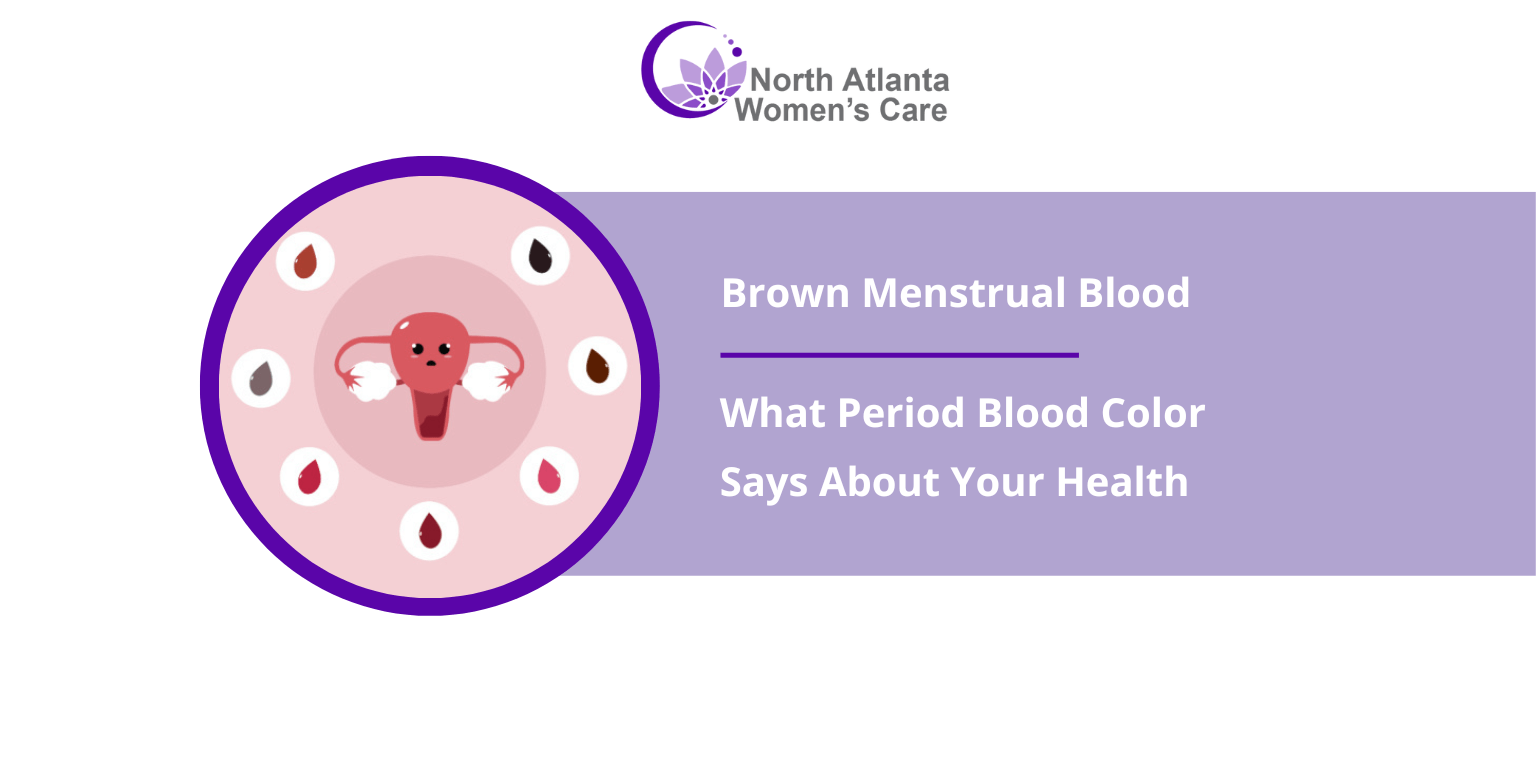Brown Menstrual Blood: What Period Blood Color Says About Your Health

Every woman's menstrual cycle is a unique experience. For some, it's like clockwork, arriving on schedule with familiar characteristics. However, there are times when your period may present variations that leave you wondering about its color and consistency. While bright red is the norm, variations, such as brown menstrual blood, are not uncommon and can cause concern or curiosity. In this blog, we'll explore the reasons for changes in period color, the significance of different colors, the presence of blood clots, and when to consult a healthcare professional.
Understanding What Normal Periods Look Like
Before we get into the details of brown menstrual blood, it's important to understand what a regular menstrual period looks like. Here are some essential aspects of a normal period:
- Blood Color: Fresh menstrual blood is typically bright red, which is a positive sign of a healthy flow from the uterus.
- Consistency: Menstrual blood usually has a moderate consistency, neither too thick nor too thin, to allow for smooth and steady flow.
- Flow: While the flow can vary between individuals, it should be manageable, meaning you don't need to change tampons or pads too frequently, and it shouldn't be excessively light, either.
- Duration: A typical menstrual period can last anywhere from 2 to 7 days, with some variations being perfectly normal.
- Pain: Mild to moderate cramps are common during menstruation, but they should not be severe enough to interfere significantly with your daily life.
What Does Different Period Blood Color Mean?
Sometimes, your period blood might not be the usual bright red, and that's okay, too. Here's what different period colors can mean:
- Brown Menstrual Blood: It is often a result of older blood mixing with the newer, brighter red blood. This can occur when the menstrual flow is slow, giving the blood more time to oxidize and turn brown. So, brown menstrual blood is not something you should worry about.
- Dark Red Period Blood: Dark red period blood can be an indication of heavier flow. When the blood flows quickly and doesn't spend much time in the uterus, it may appear darker.
- Bright Red Period Blood: Bright red blood is usually a sign of healthy menstruation. It means that the blood is flowing quickly and is oxygenated, which is typically considered normal.
- Pink Period Blood: Seeing pink period blood at the beginning of your period is common. It happens when the blood mixes with vaginal discharge and usually isn't a cause for worry. This might also occur while using birth control, as it can lower estrogen levels and result in pink blood during periods.
- Gray Period Blood: If you notice a mix of vaginal discharge and period blood, especially if the discharge looks gray, it could indicate a condition called bacterial vaginosis (BV). BV can present with additional symptoms such as itching and an unusual fishy odor.
- Black Period Blood: While rare, black period blood can be a cause for concern. This suggests the presence of older blood that has remained in the uterus for an extended duration. If you consistently observe black period blood, it is vital to consult a healthcare professional. Doing so will help rule out potential underlying issues like hormonal imbalances, uterine polyps, or fibroids, ensuring your reproductive health is adequately assessed and managed.
Blood Clots in Period Blood: Are They Normal?
Many women experience blood clots during their periods, and this is usually nothing to worry about. Blood clots during your period can be caused by the natural coagulation of blood. They are more common during heavy flow days when the blood is rapidly expelled from the uterus. Blood clots are typically small and can vary from bright red to dark red. However, if you frequently pass large clots or experience severe pain and heavy bleeding, it's advisable to consult a healthcare professional. This could indicate underlying conditions like uterine fibroids or endometriosis.
The Right Time to Consult Your Doctor
While brown menstrual blood is generally a common occurrence, there are situations when you should seek a doctor's consultation:
- Consistently Black Blood: If your period consistently features black blood, it may indicate old blood is not being expelled correctly. The root causes of such symptoms may stem from hormonal imbalances, uterine irregularities, or various other health factors. However, your doctor can conduct thorough assessments and diagnostic tests to pinpoint the underlying factors.
- Unusual Odor or Discharge: If your period blood has an unusual odor or is accompanied by unusual discharge, it might be a sign of infection, such as bacterial vaginosis or a sexually transmitted infection. It is important to seek medical attention as soon as possible to diagnose and treat the issue.
- Irregular Periods: Persistent irregular periods could indicate hormonal imbalances or other underlying health conditions that require evaluation. Your healthcare provider can assess your menstrual cycle and recommend necessary treatments.
Key Takeaways
Your menstrual cycle can tell you a lot about your health, and changes in period color or pattern are not something to ignore. While brown menstrual blood is normal, some could be a sign of underlying issues. Your well-being is important, and you should always feel comfortable discussing your menstrual health with a healthcare provider.
North Atlanta Women's Care for Better Care of Your Menstrual Health
At North Atlanta Women's Care, we offer a wide range of quality women's care. Our team of board-certified gynecologic and obstetric physicians is committed to providing the highest standards of service with compassion and care, using state-of-the-art technology.
If you have any questions or concerns about your menstrual cycle or reproductive health, especially if you're looking for period treatment in Suwanee/Johns Creek, GA, or the North Atlanta Area, we're here to help. For more information we offer in reproductive healthcare, contact us today to schedule an appointment.
Content Source: Healthline
Comments are closed

